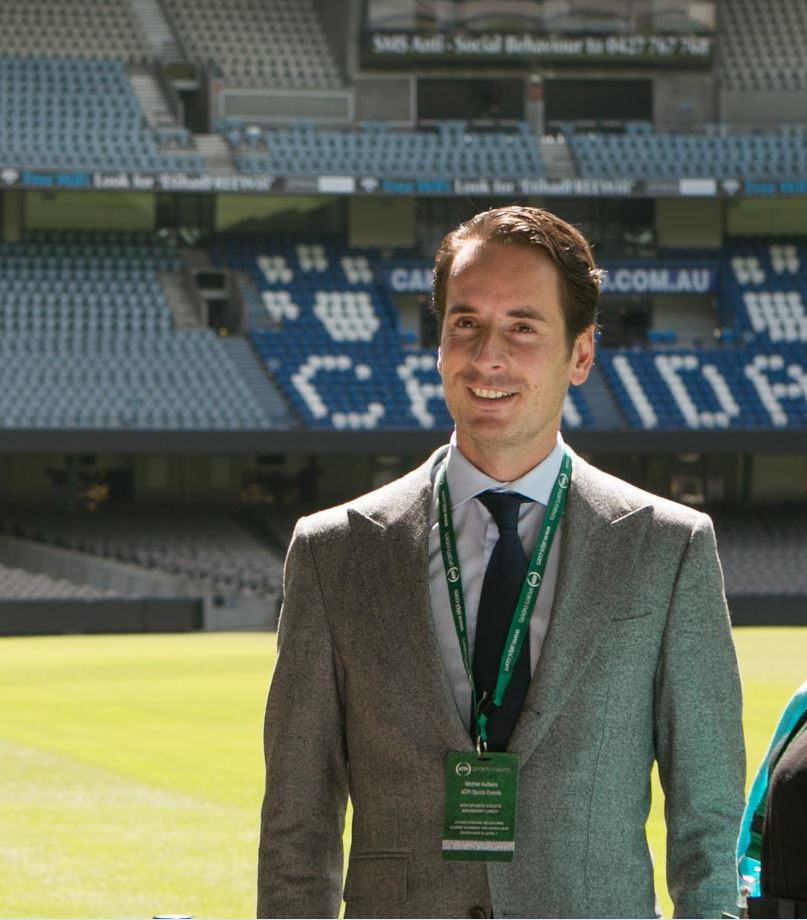Elite athletes and teams travel with a clear mission in mind: to compete at their highest level they can. Ensuring that every element of the process – from getting equipment to the right location, to accommodating the longer-than-average legs of some sportspeople – is all in a day’s work for a sports specialist travel management company (TMC).
ATPI Sports Events is an events business with teams delivering travel, events, corporate hospitality, ticketing, branding and sponsorship activation for events and sports brands around the world. With two years to go until the Tokyo 2020 Olympics, Michiel Aulbers, global commercial head of sports of the ATPI Group, has listed five considerations that sports teams need to add to their preparation plans.
Banned baggage
The right kit for any sportsperson is essential to their performance. But many valuable items are in fact not allowed in an aeroplane cabin, or need special permission to hold. With some goods that may understandably be classed as dangerous, there is also a limit as to how much can be on one aircraft.
All of these items have to be correctly documented and secured in order to fly in the hold of an aeroplane. When arranged properly the separation anxiety of a sportsperson missing their essential equipment can be eased. Similarly, it is important to ensure athletes have the necessary allowances in place for the excess weight and space required for such equipment compared to other travellers.
Meal plans
The average aeroplane meal – however far they have come – will never meet the nutrition standards of an elite athlete and neither will a hotel room service club sandwich and chips. For many athletes having the means in place for food to be transported, and then also prepared at the destination, is a vital part of their training routine.
Sports teams don’t leave anything to chance, hence security arrangements for kitchen preparation areas and their own trusted chefs to oversee meal plans is becoming an increasing requirement. Travel planning for athletes requires ensuring hotels can provide separate kitchen spaces and secure food storage areas.
Physical difference

The average basketball player in America’s NBA is 6 feet 7 inches tall, compared to the average height of an American male at 5 feet 9 inches tall. Train seats, airline seat pitches, hotel beds, showers and baths are all built and planned for averages.
In some sports the physiques required mean that the athletes might need specially designed beds delivered to their accommodation, creative seating plans in aeroplanes or team coach transport and shower heads that don’t bash into their chest. A specialist at ATMC will think through all the eventualities that will ensure an athlete can travel and sleep in comfort, so they are able to achieve peak performance.
Team matters
Any gold medal winning athlete is made by their supporting team. Accommodating coaches, physiotherapists, sports psychologists, doctors, nutritionists and more must be factored into travel plans. Keeping a team together might seem like stating the obvious, but as well as the players it is this wider support team that must be a key consideration in any travel policy.
Sports psychologists will have different room and facility requirements to a team nutritionist, but each of their roles in the team are indispensable and must be managed appropriately.
Location, location, location
Security and peace and quiet are just two factors to take into account when booking hotel rooms for sports teams. Not only is an uninterrupted good night’s sleep essential for athletes, but teams take it for granted that a travel manager will think through elements such as ensuring athletes don’t have rooms on the ground floor, near lifts, or at the front of a hotel in their planning.
At times, minute details such as requesting athletes’ rooms to be on the same side as the sunrise are taken into consideration. And once the considerations of the athletes are covered, the security and storage of any training and recovery equipment is another crucial area for attention.



 share
share












































